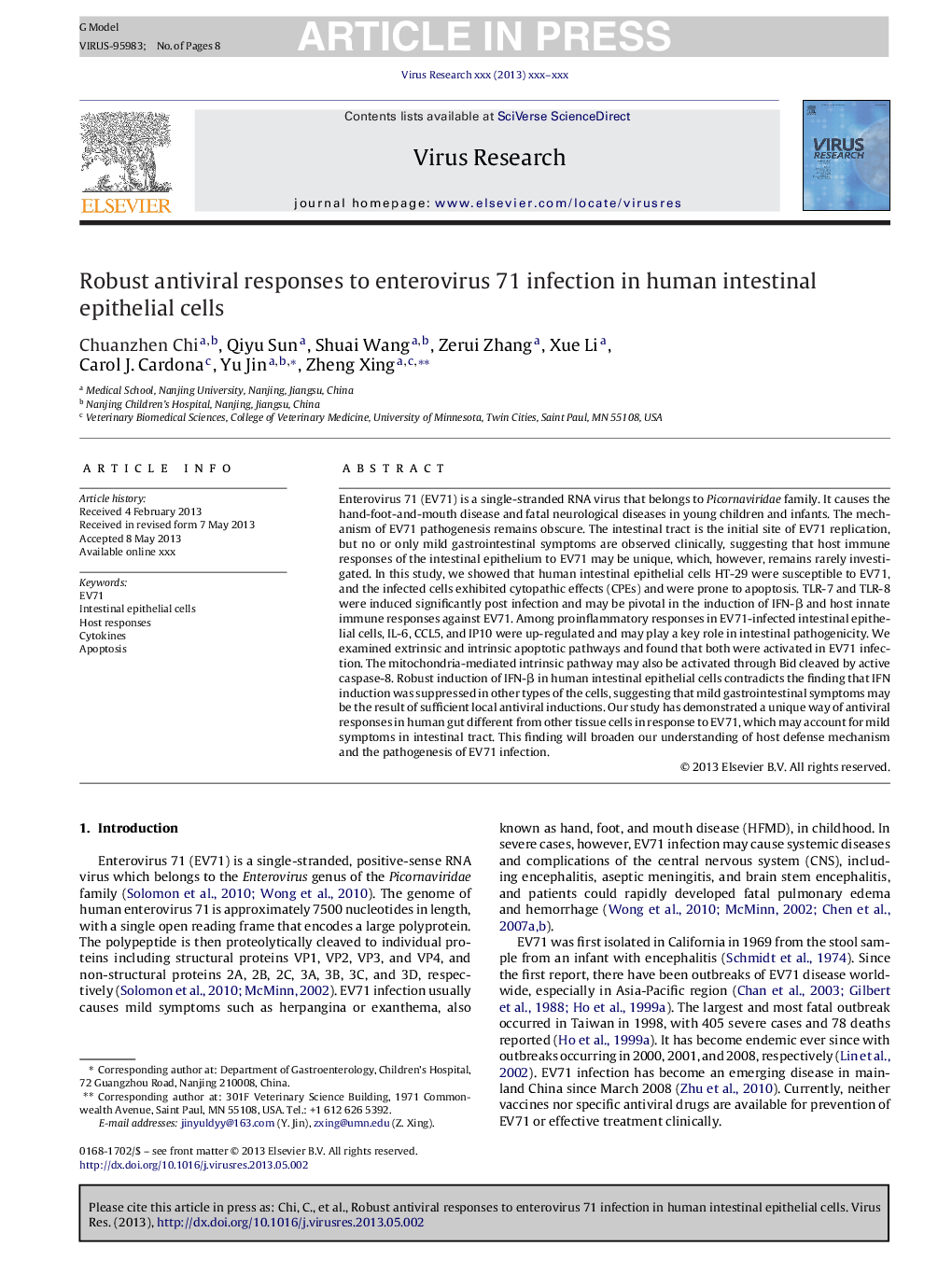| Article ID | Journal | Published Year | Pages | File Type |
|---|---|---|---|---|
| 6142950 | Virus Research | 2013 | 8 Pages |
Abstract
Enterovirus 71 (EV71) is a single-stranded RNA virus that belongs to Picornaviridae family. It causes the hand-foot-and-mouth disease and fatal neurological diseases in young children and infants. The mechanism of EV71 pathogenesis remains obscure. The intestinal tract is the initial site of EV71 replication, but no or only mild gastrointestinal symptoms are observed clinically, suggesting that host immune responses of the intestinal epithelium to EV71 may be unique, which, however, remains rarely investigated. In this study, we showed that human intestinal epithelial cells HT-29 were susceptible to EV71, and the infected cells exhibited cytopathic effects (CPEs) and were prone to apoptosis. TLR-7 and TLR-8 were induced significantly post infection and may be pivotal in the induction of IFN-β and host innate immune responses against EV71. Among proinflammatory responses in EV71-infected intestinal epithelial cells, IL-6, CCL5, and IP10 were up-regulated and may play a key role in intestinal pathogenicity. We examined extrinsic and intrinsic apoptotic pathways and found that both were activated in EV71 infection. The mitochondria-mediated intrinsic pathway may also be activated through Bid cleaved by active caspase-8. Robust induction of IFN-β in human intestinal epithelial cells contradicts the finding that IFN induction was suppressed in other types of the cells, suggesting that mild gastrointestinal symptoms may be the result of sufficient local antiviral inductions. Our study has demonstrated a unique way of antiviral responses in human gut different from other tissue cells in response to EV71, which may account for mild symptoms in intestinal tract. This finding will broaden our understanding of host defense mechanism and the pathogenesis of EV71 infection.
Related Topics
Life Sciences
Immunology and Microbiology
Virology
Authors
Chuanzhen Chi, Qiyu Sun, Shuai Wang, Zerui Zhang, Xue Li, Carol J. Cardona, Yu Jin, Zheng Xing,
